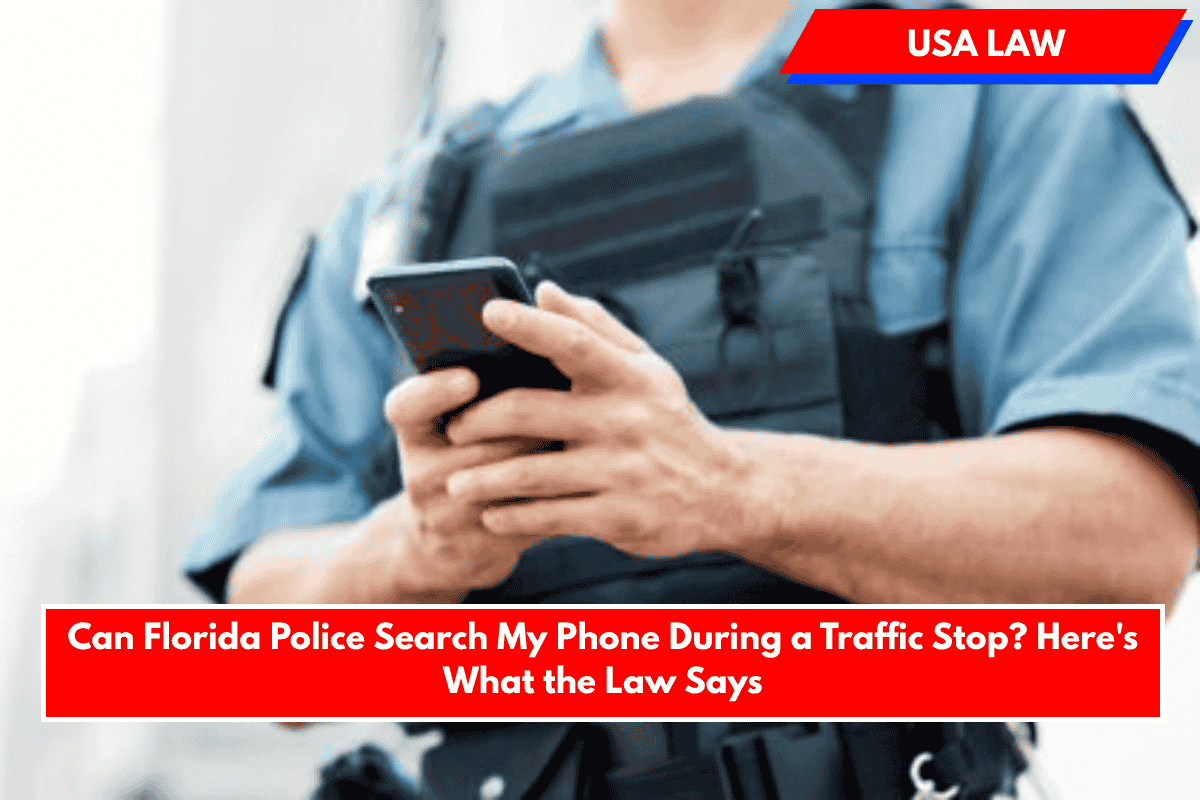General Rule: Warrant or Consent Required
Florida police cannot search your cell phone during a traffic stop without your consent or a valid search warrant. Your phone is protected under the Fourth Amendment, which guards against unreasonable searches and seizures This means that, even if you are pulled over for texting and driving or any other traffic violation, officers do not have the authority to access or search the contents of your phone unless you explicitly agree or a judge has issued a warrant based on probable cause.
Key Points:
- If police ask to search your phone, you have the right to politely refuse. You are not required to unlock your phone or hand it over.
- Officers cannot coerce or intimidate you into consenting to a search. Any evidence obtained through an illegal search may be inadmissible in court.
- Police cannot confiscate your phone while waiting for a warrant, nor can they force you to unlock it using your passcode, fingerprint, or facial recognition without a specific court order.
Exceptions to the Rule
There are limited exceptions where police might access your phone without a warrant, but these are rare and generally involve urgent circumstances, such as:
- If you give explicit consent for the search.
- If there is an immediate threat to safety or risk of evidence being destroyed (exigent circumstances), though courts scrutinize such claims closely.
- If incriminating evidence is in plain view on your phone’s screen at the time of the stop (for example, if an officer sees an illegal message or image displayed openly).
What About After an Arrest?
Even if you are arrested during a traffic stop, police still generally need a warrant to search the contents of your phone. The U.S. Supreme Court’s Riley v. California decision made clear that cell phones are not subject to the same search-incident-to-arrest rules as other items. However, if police obtain a warrant, they may also be able to compel you to provide your passcode, as Florida courts have ruled that you can be required to unlock your device if a warrant authorizes the search.
Your Rights in Practice
- You can and should say “no” if asked to consent to a search of your phone during a traffic stop.
- If police proceed without your consent or a warrant, any evidence found may be challenged and potentially suppressed in court.
- If you are unsure or feel pressured, you have the right to remain silent and request an attorney before answering questions or consenting to any search.
Summary Table: Florida Police Phone Search Rules
| Scenario | Can Police Search Your Phone? | What You Should Do |
|---|---|---|
| Routine traffic stop | No, unless you give consent or they have a warrant | Politely refuse consent |
| Texting and driving stop | No, same rules as above | Politely refuse consent |
| After arrest | Generally no, unless with a warrant | Do not unlock or hand over your phone |
| Exigent circumstances (rare) | Possible, but must be justified | Ask for legal counsel |
| Evidence in plain view on screen | May view what’s visible, but not search deeper | Keep phone locked and screen off |
Florida police cannot search your phone during a traffic stop unless you give explicit consent or they obtain a search warrant. You have the right to refuse a search and should exercise that right to protect your privacy. If you believe your rights have been violated, consult a qualified attorney.
Sources
- https://www.rossenlawfirm.com/blog/if-im-pulled-over-for-texting-and-driving-can-a-cop-search-my-phone-no-says-fort-lauderdale-criminal-defense-attorney/
- https://www.govtech.com/public-safety/can-police-search-your-phone-during-a-traffic-stop
- https://www.kevinkuliklaw.com/your-cell-phone-and-your-rights-in-a-florida-criminal-case/
- https://www.rflawgroup.com/smartphones-and-the-fourth-amendment/
- https://www.wisemantriallaw.com/blog/can-the-police-search-my-cell-phone-without-a-wa/











